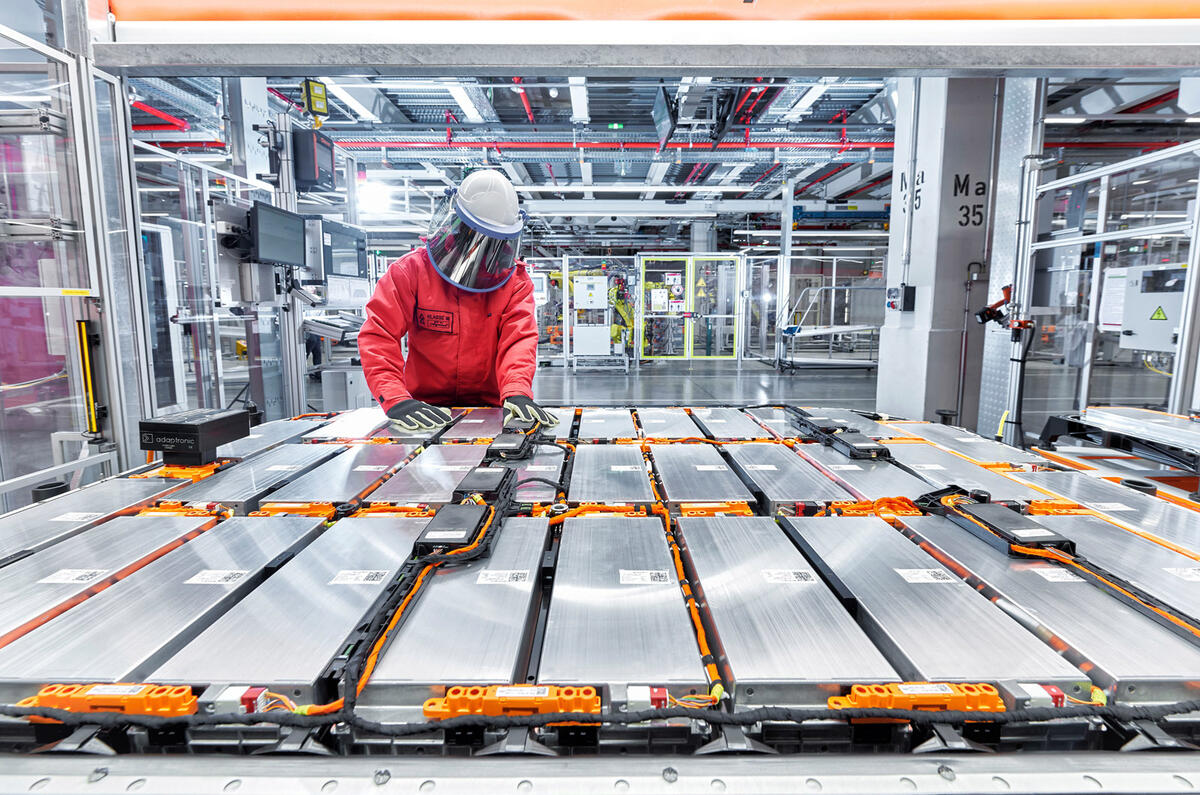Nissan’s forthcoming EV battery factory in Sunderland will open with a 9GWh capacity and has the potential to expand to 35GWh. That’s enough to eventually power more than 500,000 EVs per year – yet it’s just the tip of a gigaberg.
It sounds impressive, but it also illustrates the enormous punt the automotive industry is taking on a technology path steeped in so many intangibles. Is it backing a dead cert or an outsider? Does anyone really know yet how things will pan out in an industry that, until the BEV came along, had 150 years to evolve?
Battery 'gigafactories' are rapidly becoming the thing, initiated by Tesla, which is also building them in Germany and elsewhere in Europe. There are more either up and running or planned from Samsung SDI, SK Innovation, LG Chem, Northvolt, CATL, Verkor, Britishvolt and others, in many cases backed by car makers.
The exponential growth of battery production is staggering. So is the massive commitment to BEVs when the industry has been saying for years that there will no silver bullet to alternative forms of propulsion. Both pose questions.
One is the rate of change of a technology that's still in its infancy. Although most cars are bought using finance anyway, it’s a brave person who invests cash in a new EV now. I bought my first earlier this year, the benchmark Kia e-Niro, but I reckon it’s likely to be borderline obsolete by the end of my contract.
The same must surely apply to gigafactories. If they’re being designed to produce 'old-technology' lithium ion batteries today, how will they make the transition when solid-state or something we don’t yet know about yet is production-ready? If it’s the latter, what will be involved in retooling these massive plants, and how much will it cost?
On the subject of the silver bullet, does the global love affair with the battery distract from other potential methods of rolling out renewable energy, such as hydrogen, and condemn them to the back-burner indefinitely? It looks that way.
'Gigafactories' have become about more than just battery plants, they’re going hand in hand with the ‘greening’ of the industry. Tesla says its Nevada factory will be powered wholly by sustainable energy and Nissan is planning the same for its facility.
Nissan also plans the use of second-life batteries for storing off-peak energy as part of what it calls a microgrid. The future is beginning to look like a done deal.
I’ve never seen anything like this in my long career as a motoring hack, and it’s scary but exciting. I hope it does turn out to be the dead cert it needs to be. But one thing is for sure: we will know by 2030.
READ MORE
Nissan to build new electric crossover and battery factory in UK




Join the debate
Add your comment
It’s internal combustion that is obsolete and the real risk now is in leasing a new IC car, especially if it’s diesel, because in 4 years time who will want to buy it?
Cobnapint
This is all FUD batteries are lasting longer than 7 years modern EV's bagan selling in 2010, so why cant i find a cheap run down old EV prices are still strong.
Solid state is used buy big oil and coal lobbyists to dampen demand for lithium battery technology as they now soild state has problems and its a long way off.
Rolls Royce spend millions making their petrol cars silent but they aren't as quiet as my Leaf driving in silence is amazing.
My Leaf is nearly 5 years old and battery is still going strong, also it will never require a new clutch, its still on the same brake pads, it will never need a new cam belt, its never had a change of oil, it will never need a new exhaust or catalytic converter with rare earth metals, it doesn't need an oil filter, it doesn't need tuning, it doesn't need a smoke test.
Supercars will be like steam locamotives you are correct, many EV's offer supercar perfomance in a 7 seat SUV for less than 1/2 the price whos nuts now.
EV and battery design is presently charging forward like a massive out of control snowball rolling down a hill.
It's going so quickly that when your battery pack comes to be replaced in 7 or so years time its quite feasible that nobody will be producing it anymore. It'll be yesterday's tech.
Solid State batteries will be the thing by then and they probably won't be cross compatible with say a Leaf or ID from today without some software and physical upgrades (expensive) to the car's electronics.
We are rushing headlong into uncharted territory. It will eventually be a world where the sound of supercar's exhausts will never echo off the buildings in Kensington again. Or anywhere else for that matter. They will become as rare as shooting stars. Crowds will gather in anticipation to hear one pass, like now when a steam locomotive makes a special journey.
We must be nuts.